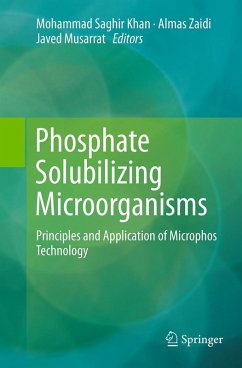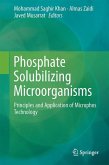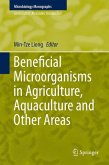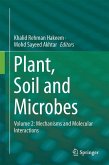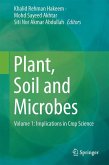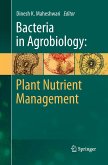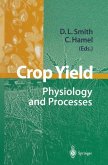This book provides a comprehensive description of phosphate solubilizing microorganisms and highlights methods for the use of microphos in different crop production systems. The focus is on understanding both the basic and applied aspects of phosphate solubilizing microorganisms and how phosphorus-deficient soils can be transformed into phosphorus-rich ones by applying phosphate solubilizing microorganisms. The interaction of rhizosphere phosphate solubilizing microorganisms and environmental variables, as well as their importance in the production of crops such as legumes, cereals, vegetables etc. are discussed and considered. The use of cold-tolerant phosphate solubilizing microorganisms to enhance crop productivity in mountainous regions is examined, as are the ecological diversity and biotechnological implications of phosphate solubilizing microorganisms. Lastly, the role of phosphate solubilizing microorganisms in aerobic rice cultivation is highlighted. This volume offers abroad overview of plant disease management using phosphate solubilizing microbes and presents strategies for the management of cultivated crops. It will therefore be of special interest to both academics and professionals working in the fields of microbiology, soil microbiology, biotechnology and agronomy, as well as the plant protection sciences. This timely reference book provides an essential and comprehensive source of material, as it includes recent findings on phosphate solubilizing microorganisms and their role in crop production.
Bitte wählen Sie Ihr Anliegen aus.
Rechnungen
Retourenschein anfordern
Bestellstatus
Storno

